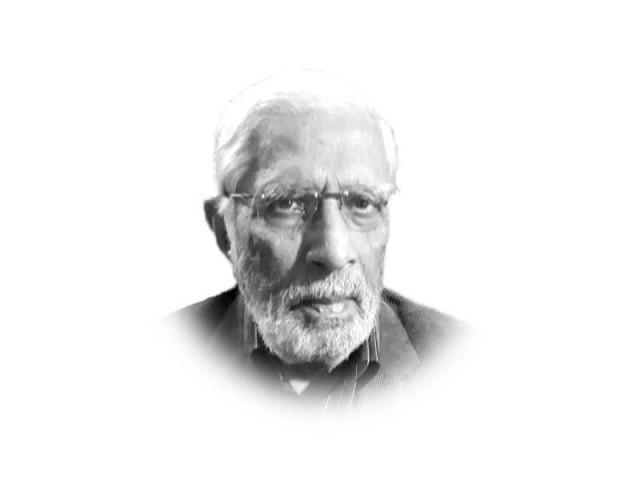The reform riddle
Our big business does not wish the govt to know its rentier level of profit margins, neither does it want to pay taxes

The writer served as Executive Editor of The Express Tribune from 2009 to 2014
Three reasons quickly come to mind why this is so in Pakistan’s case. One could be the perennial weakness of our poor to suffer in silence. The media normally takes up the issue but since it is owned mostly by the upper middle classes its coverage remains mostly superficial, patchy and without the necessary influence needed to mobilise the poor on a unified protest platform. Same goes for political parties — the ruling as well as the opposition — which because of the high cost of election campaigning have already been taken over by the big business which in turn has led to gradual weakening of trade unions.
The second could be the culture of joint family system in our overpopulated rural regions where sharing among even extended families is an entrenched custom. Also, since most of rural Pakistan lacks even the rudimentary facilities for education and health and goes without adequate supplies of utilities like electricity and gas, the budgets of most rural families remain protected from vagaries of normal across-the-board price increases and withdrawal of subsidies.
Remittances accruing to lower middle class families could also be counted as one of the reasons. Such families may not be large in numbers, but could still be enough to subdue to an extent the pain of price increases across the board for a part of population living under or just over the poverty line.
Above all, the black economy which is said to be as large as the white one and is regularly fueled by the undocumented agricultural economy (approximately 20% of formal GDP) which has remained out of the income tax net, is said to generate enough low paying jobs to keep a large number of poverty-stricken population from falling further below subsistence. Add to this the regular supply of black resources siphoned off from the national kitty by the corrupt civil-military bureaucracy and elected political office holders, plus taxes avoided and evaded by the rich, and you get a parallel economy with enough capacity to lessen the inflation transmitted pain of the poor.
That is perhaps why we have largely succeeded in completing the first phase of reforms (with focus on all-round price increases and withdrawal of subsidies on essentials) sought by the 23 IMF programmes we signed over the last 50 years.
It is only when it is time to begin the second phase of the reform focused on broadening the tax base and documentation of economy that the trouble starts. Our big business does not wish the government to know its rentier level of profit margins and neither does it want to pay its due taxes, therefore, it invariably resists with all its political power the second phase of reforms. Most governments in Islamabad find it almost impossible to fight the big business and invariably abandon the Fund programme after the release of first tranche or the Fund itself ends it. Since this has happened more often than not, Pakistan has earned the ignominious title of being a “single tranche” country. The few times the programme was completed, it has been done with a number of waivers from the Fund as it happened with the last three-year programme which was completed with 13 waivers in September 2016. The fate of the current programme which has recently entered the second phase of reforms also appears to be hanging in balance with the government finding it increasingly difficult to implement.
Published in The Express Tribune, November 2nd, 2019.
Like Opinion & Editorial on Facebook, follow @ETOpEd on Twitter to receive all updates on all our daily pieces.















COMMENTS
Comments are moderated and generally will be posted if they are on-topic and not abusive.
For more information, please see our Comments FAQ